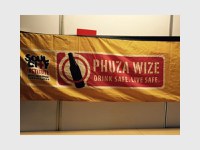
New regulations to creating a safer drinking environment

This emerged during a panel discussion on the national liquor norms and standards hosted by Soul City Institute for Health and Development Communication.
The National Liquor Norms and Standards 2014, which was gazetted by Minister of Trade and Industry, Rob Davies in February last year, are set to be promulgated shortly.
Chief director at the department’s National Liquor Authority, Prea Ramdhuny said the purpose of the norms and standards was to harmonise the successful implementation and enforcement of liquor laws. At present, each of the provinces had its own legislation in addition to a national one.
The country had an estimated 86 000 licensees with about 500 inspectors trained to monitor compliance with liquor licence requirements.
Ramdhuny said effective enforcement of legislation at provincial and national level was critical.
President of the South African Leisure Tourism and Hospitality Association, Churchill Mrasi made a plea to the DTI to involve the association’s members in enforcing the legislation, effectively proposing a peer monitoring system; while law enforcement will keep a beady eye on transgressors.
Section Head of National Liquor Control at the South African Police Services, Brigadier Elias Mahlabane said the police were determined to enforce liquor regulations. “If you are illegal, we will close you down,” he said. “You’ll be surprised to find out that even though we are enforcing, illegal trading is blossoming.”
In response to Soul City’s senior advocacy manager, Savera Kalideen’s comment that 7 percent of the disease burden of the country was as a result of alcohol abuse, Cleo Bodibe-Lushaba of the Gauteng Liquor Board said, “Starting this financial year 2015/16, the intention is to use the one percent revenue to increase the number of rehab centres.”
Article originally from Rosebank Killarney Gazette
